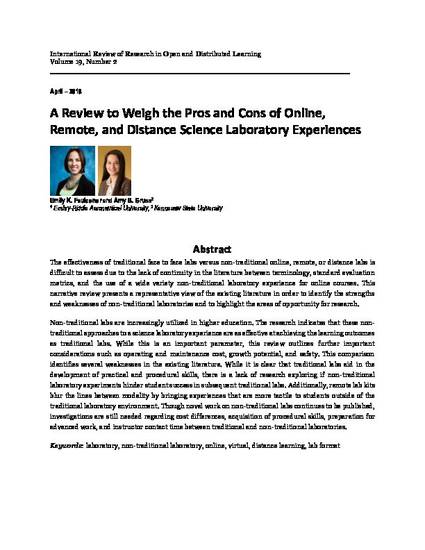
The effectiveness of traditional face to face labs versus non-traditional online, remote, or distance labs is difficult to assess due to the lack of continuity in the literature between terminology, standard evaluation metrics, and the use of a wide variety non-traditional laboratory experience for online courses. This narrative review presents a representative view of the existing literature in order to identify the strengths and weaknesses of non-traditional laboratories and to highlight the areas of opportunity for research. Non-traditional labs are increasingly utilized in higher education. The research indicates that these non-traditional approaches to a science laboratory experience are as effective at achieving the learning outcomes as traditional labs. While this is an important parameter, this review outlines further important considerations such as operating and maintenance cost, growth potential, and safety. This comparison identifies several weaknesses in the existing literature. While it is clear that traditional labs aid in the development of practical and procedural skills, there is a lack of research exploring if non-traditional laboratory experiments hinder student success in subsequent traditional labs. Additionally, remote lab kits blur the lines between modality by bringing experiences that are more tactile to students outside of the traditional laboratory environment. Though novel work on non-traditional labs continues to be published, investigations are still needed regarding cost differences, acquisition of procedural skills, preparation for advanced work, and instructor contact time between traditional and non-traditional laboratories.
